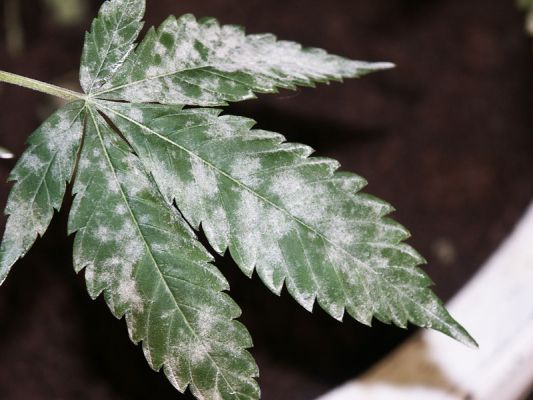Israeli start-up has discovered how to harvest mildew-resistant cannabis

An Israeli start-up company called CanBreed has reported how its CRISPR-Cas9 gene-editing technology could improve mildew resistance for cannabis plants. The unique technology – of which the rights are held by Corteva Agriscience and the Broad Institute of MIT and Harvard – could completely transform the legal weed landscape, not just in Israel, but around the world.
The task of growing mildew-free cannabis wouldn’t have been possible without CanBreed’s team of researchers and developers. Included in that group of experts are agronomists, molecular biologists and geneticists.
CanBreed CEO Ido Margalit explained to reporters at The Times of Israel that the R&D team successfully “edited a gene that expresses a protein responsible for creating sensitivity to powdery mildew infection.” Margalit went on to say that the editing process enabled the team to cultivate a cannabis plant that is completely repellent of the fungus.
In addition to CanBreed, a group of Canadian researchers are also exploring methods to make cannabis impervious to the fungal disease. The North American researchers have teamed up with Aurora Cannabis after receiving funding to the amount of $4.2 million. They will conduct their experiments at the University of British Columbia.
What are the dangers of consuming cannabis with powdery mildew?
Cannabis cultivators will face many contamination risks during the harvesting process, from dealing with pesticides to making sure heavy metals don’t infiltrate the plant soil. Mold and mildew are two other things that can taint the quality of cannabis plants. Specifically, powdery mildew is a type of fungal disease that not only affects cannabis but various other species of plant, too.
Agricultural experts claim that the fungal disease is one of the most serious threats to crops; cannabis with powdery mildew may become so contaminated that the entire crop is destroyed in no more than one week. Now that the Israeli scientists have discovered a way to improve mildew resistance for cannabis plants, the team must gather definitive proof that the gene-edited plants are actually capable of growing without the fungus.
To accomplish this mission, the Israeli startup will collaborate with scientists at the Hebrew University of Jerusalem. Collectively, the group of experts will utilize specialist equipment to alter cannabis genetics, before rigorously testing the plants to ensure they really are free from the black – or sometimes white – growth.
When the team is satisfied that their hard work has been a success, they intend on commercially selling cannabis seeds. CanBreed hopes to patent its product — something that Margalit believes will lead to a “standardization of the industry.” He made a point of noting that fungicides are currently not permitted in Israel, where the plant is legal for medicinal purposes.
Israeli researchers want to experiment with cannabis gene traits
Not only will the team of Israeli researchers experiment with various methods of making cannabis mildew-resistant but also, they will fiddle with gene-editing techniques. Why? Although the outcome is unknown just yet, the team is optimistic that they will be victorious in their efforts to amplify other aspects of the plant.
The genetic structure of a cannabis plant, in addition to the cultivation environment, defines its final composition. Cannabinoid profiles and the observable characteristics or traits (phenotypes) can vary widely depending on the unique arrangement of expressed and non-expressed genes that form once the 20 chromosomes – each of which harbors hundreds of unique genes – combine.
Should the Israeli researchers manage to enhance cannabis genetics, the findings could help unlock new uses for the plant in medical environments. You can find out more about CanBreed’s technology by sending an email to: [email protected].










